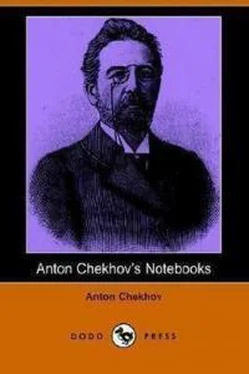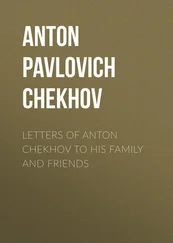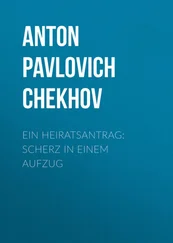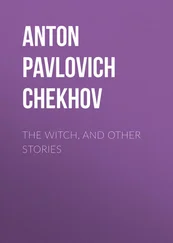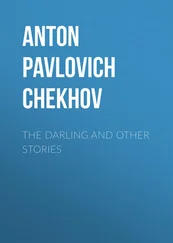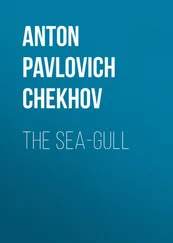Антон Чехов - Notebooks of Anton Chekhov
Здесь есть возможность читать онлайн «Антон Чехов - Notebooks of Anton Chekhov» весь текст электронной книги совершенно бесплатно (целиком полную версию без сокращений). В некоторых случаях можно слушать аудио, скачать через торрент в формате fb2 и присутствует краткое содержание. Год выпуска: 2014, Издательство: epubBooks Classics, Жанр: Биографии и Мемуары, на английском языке. Описание произведения, (предисловие) а так же отзывы посетителей доступны на портале библиотеки ЛибКат.
- Название:Notebooks of Anton Chekhov
- Автор:
- Издательство:epubBooks Classics
- Жанр:
- Год:2014
- ISBN:нет данных
- Рейтинг книги:4 / 5. Голосов: 1
-
Избранное:Добавить в избранное
- Отзывы:
-
Ваша оценка:
- 80
- 1
- 2
- 3
- 4
- 5
Notebooks of Anton Chekhov: краткое содержание, описание и аннотация
Предлагаем к чтению аннотацию, описание, краткое содержание или предисловие (зависит от того, что написал сам автор книги «Notebooks of Anton Chekhov»). Если вы не нашли необходимую информацию о книге — напишите в комментариях, мы постараемся отыскать её.
Notebooks of Anton Chekhov — читать онлайн бесплатно полную книгу (весь текст) целиком
Ниже представлен текст книги, разбитый по страницам. Система сохранения места последней прочитанной страницы, позволяет с удобством читать онлайн бесплатно книгу «Notebooks of Anton Chekhov», без необходимости каждый раз заново искать на чём Вы остановились. Поставьте закладку, и сможете в любой момент перейти на страницу, на которой закончили чтение.
Интервал:
Закладка:
* * * * *
The squire N. always quarrels with his neighbors who are Molokans [13] Molokans are a religious sect in Russia.
; he goes to court, abuses and curses them; but when at last they leave, he feels there is an empty place; he ages rapidly and pines away.
* * * * *
Mordukhanov.
* * * * *
With N. and his wife there lives the wife's brother, a lachrymose young man who at one time steals, at another tells lies, at another attempts suicide; N. and his wife do not know what to do, they are afraid to turn him out because he might kill himself; they would like to turn him out, but they do not know how to manage it. For forging a bill he gets into prison, and N. and his wife feel that they are to blame; they cry, grieve. She died from grief; he too died some time later and everything was left to the brother who squandered it and got into prison again.
* * * * *
Suppose I had to marry a woman and live in her house, I would run away in two days, but a woman gets used so quickly to her husband's house, as though she had been born there.
* * * * *
Well, you are a Councillor; but whom do you counsel? God forbid that any one should listen to your counsels.
* * * * *
The little town of Torjok. A sitting of the town council. Subject: the raising of the rates. Decision: to invite the Pope to settle down in Torjok—to choose it as his residence.
* * * * *
S.'s logic: I am for religious toleration, but against religious freedom; one cannot allow what is not in the strict sense orthodox.
* * * * *
St. Piony and Epinach. ii March, Pupli 13 m.
* * * * *
Poetry and works of art contain not what is needed but what people desire; they do not go further than the crowd and they express only what the best in the crowd desire.
* * * * *
A little man is very cautious; he sends even letters of congratulation by registered post in order to get a receipt.
* * * * *
Russia is an enormous plain across which wander mischievous men.
* * * * *
Platonida Ivanovna.
* * * * *
If you are politically sound, that is enough for you to be considered a perfectly satisfactory citizen; the same thing with radicals, to be politically unsound is enough, everything else will be ignored.
* * * * *
A man who when he fails opens his eyes wide.
* * * * *
Ziuzikov.
* * * * *
A Councillor of State, a respectable man; it suddenly comes out that he has secretly kept a brothel.
* * * * *
N. has written a good play; no one praises him or is pleased; they all say: "We'll see what you write next."
* * * * *
The more important people came in by the front door, the simple folk by the back door.
* * * * *
He: "And in our town there lived a man whose name was Kishmish (raisin). He called himself Kishmish, but every one knew that he was Kishmish."
She (after some thought): "How annoying … if only his name had been Sultana, but Kishmish!…"
* * * * *
Blagovospitanny.
* * * * *
Most honored Iv–Iv–itch!
* * * * *
How intolerable people are sometimes who are happy and successful in everything.
* * * * *
They begin gossiping that N. is living with Z.; little by little an atmosphere is created in which a liaison of N. and Z. becomes inevitable.
* * * * *
When the locust was a plague, I wrote against the locust and enchanted every one, I was rich and famous; but now, when the locust has long ago disappeared and is forgotten, I am merged in the crowd, forgotten, and not wanted.
* * * * *
Merrily, joyfully: "I have the honor to introduce you to Iv. Iv. Izgoyev, my wife's lover."
* * * * *
Everywhere on the estate are notices: "Trespassers will be prosecuted," "Keep off the flowers," etc.
* * * * *
In the great house is a fine library which is talked about but is never used; they give you watery coffee which you cannot drink; the garden is tasteless with no flowers in it—and they pretend that all this is something Tolstoian.
* * * * *
He learnt Swedish in order to study Ibsen, spent a lot of time and trouble, and suddenly realized that Ibsen is not important; he could not conceive what use he could now make of the Swedish language. [14] Ibsen wrote in Norwegian of course. Responding to a request for his interpretation of this curious paragraph. Mr. Koteliansky writes: "Chekhov had a very high opinion of Ibsen; the paragraph, I am sure, is by no means aimed at Ibsen. Most probably the paragraph, as well as many others in the Notes, is something which C. either personally or indirectly heard someone say. You will see that Kuprin ["Reminiscences of Chekhov," by Gorky, Kuprin and Bunin, New York: Huebsch.] told C. the anecdote about the actor whose wife asked him to whistle a melody on the stage during a rehearsal. In C.'s Notes you have that anecdote, somewhat shortened and the names changed, without mentioning the source." "The reader, on the whole, may puzzle his head over many paragraphs in the Notes, but he will hardly find explanations each time. What the reader has to remember is that the Notes are material used by C. in his creative activity and as such it throws a great deal of light on C.'s mentality and process of working."
* * * * *
N. makes a living by exterminating bugs; and for the purposes of his trade he reads the works of ―. If in "The Cossacks," bugs are not mentioned, it means that "The Cossacks" is a bad book.
* * * * *
Man is what he believes.
* * * * *
A clever girl: "I cannot pretend … I never tell a lie … I have principles"—and all the time "I … I … I … "
* * * * *
N. is angry with his wife who is an actress, and without her knowledge gets abusive criticisms published about her in the newspapers.
* * * * *
A nobleman boasts "This house of mine was built in the time of Dmitry Donskoy."
* * * * *
"Your Worship, he called my dog a bad name: 'son of a bitch.'"
* * * * *
The snow fell and did not lie on the ground reddened with blood.
* * * * *
He left everything to charity, so that nothing should go to his relations and children, whom he hated.
* * * * *
A very amorous man; he is no sooner introduced to a girl than he becomes a he–goat.
* * * * *
A nobleman Drekoliev.
* * * * *
I dread the idea that a chamberlain will be present at the opening of my petition.
* * * * *
He was a rationalist, but he had to confess that he liked the ringing of church bells.
* * * * *
The father a famous general, nice pictures, expensive furniture; he died; the daughters received a good education, but are slovenly, read little, ride, and are dull.
* * * * *
They are honest and truthful so long as it is unnecessary.
* * * * *
A rich merchant would like to have a shower bath in his W.C.
* * * * *
In the early morning they ate okroshka . [15] A cold dish composed of cider and hash.
* * * * *
"If you lose this talisman," said grandmother, "you will die." And suddenly I lost it, tortured myself, was afraid that I would die. And now, imagine, a miracle happened: I found it and continued to live.
* * * * *
Everybody goes to the theatre to see my play, to learn something instantly from it, to make some sort of profit, and I tell you: I have not the time to bother about that canaille.
* * * * *
The people hate and despise everything new and useful; when there was cholera, they hated and killed the doctors and they love vodka; by the people's love or hatred one can estimate the value of what they love or hate.
* * * * *
Looking out of the window at the corpse which is being borne to the cemetery: "You are dead, you are being carried to the cemetery, and I will go and have my breakfast."
Читать дальшеИнтервал:
Закладка:
Похожие книги на «Notebooks of Anton Chekhov»
Представляем Вашему вниманию похожие книги на «Notebooks of Anton Chekhov» списком для выбора. Мы отобрали схожую по названию и смыслу литературу в надежде предоставить читателям больше вариантов отыскать новые, интересные, ещё непрочитанные произведения.
Обсуждение, отзывы о книге «Notebooks of Anton Chekhov» и просто собственные мнения читателей. Оставьте ваши комментарии, напишите, что Вы думаете о произведении, его смысле или главных героях. Укажите что конкретно понравилось, а что нет, и почему Вы так считаете.
